Complete List of Pre-Conference Workshops - VIRTUAL WC2021
Complete List of Pre-Conference Workshops - VIRTUAL WC2021This event has passed. Please consider joining us for the ACBS Virtual World Conference 24-27 June which includes 50+ workshops, panels, research symposia, and recorded viewing for 2 months!
ACBS VIRTUAL WC2021 Pre-Conference Workshops
12 & 13 June MORNING workshops:
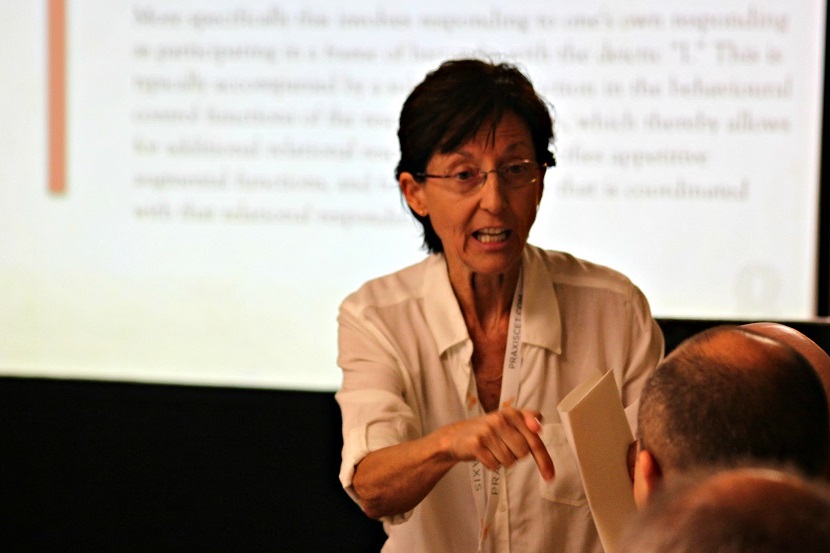
Darin Cairns, M.A.
(Clinical; Intermediate, Advanced)
David Gillanders, DClinPsy, Sonja V. Batten, Ph.D.
(Clinical; Beginner, Intermediate)
Dennis Tirch, Ph.D., Laura Silberstein-Tirch, Psy.D.
(Clinical; Beginner, Intermediate, Advanced)
Robyn Walser, Ph.D.
(Clinical; Intermediate, Advanced)
12 & 13 June AFTERNOON workshops:
-
ACT for Life: Experiential training on a Contextual Behavioral Approach to Suicidal Ideation and Behavior

Sean M. Barnes, Ph.D., Lauren M. Borges, Ph.D., Geoffrey Smith, Psy.D., Debbie Sorensen, Ph.D., Nazanin H. Bahraini, Ph.D.
(Clinical; Beginner, Intermediate, Advanced)
Carmen Luciano, Ph.D.
(Clínico, Investigación; Nivel intermedio, Nivel avanzado)
(Clinical, Research; Intermediate, Advanced)
*Simultaneous English translation available*
Mary P. Loudon, Ph.D., Sarah Sullivan-Singh, Ph.D., Mavis Tsai, Ph.D., Robert J. Kohlenberg, Ph.D.
(Clinical; Beginner, Intermediate, Advanced)
Francisco J. Ruiz, Ph.D., Louise McHugh, Ph.D., Bárbara Gil-Luciano, Ph.D.
(Clinical, Research; Beginner, Intermediate)
Emily K. Sandoz, Ph.D.
(Clinical; Intermediate, Advanced)
-
Be A Brief and Powerful Clinician: Use Focused Acceptance and Commitment Therapy (FACT) to Help Many
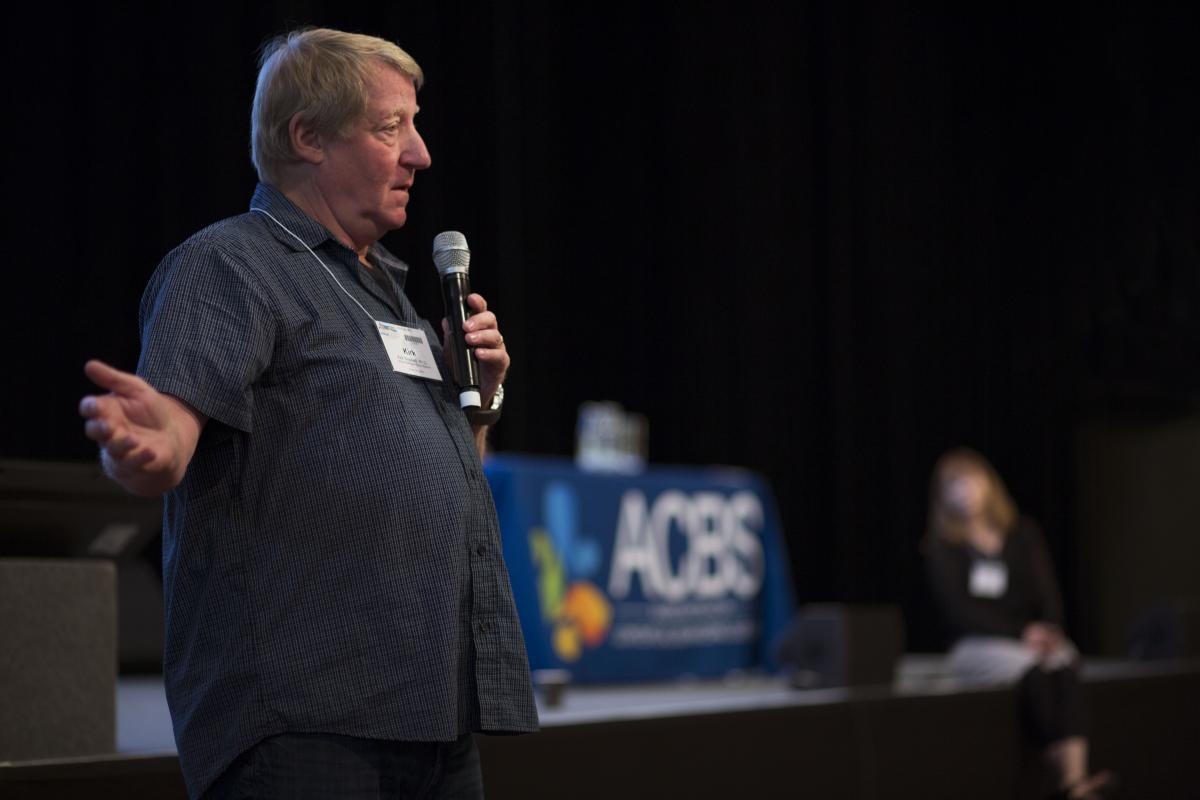
Kirk Strosahl, Ph.D., Patricia Robinson, Ph.D.
(Clinical; Beginner, Intermediate, Advanced)
Michael P. Twohig, Ph.D., Patricia Zurita Ona, Psy.D.
(Clinical, Research; Beginner, Intermediate, Advanced)
ACT for Life: Experiential training on a Contextual Behavioral Approach to Suicidal Ideation and Behavior
ACT for Life: Experiential training on a Contextual Behavioral Approach to Suicidal Ideation and BehaviorACT for Life: Experiential training on a Contextual Behavioral Approach to Suicidal Ideation and Behavior
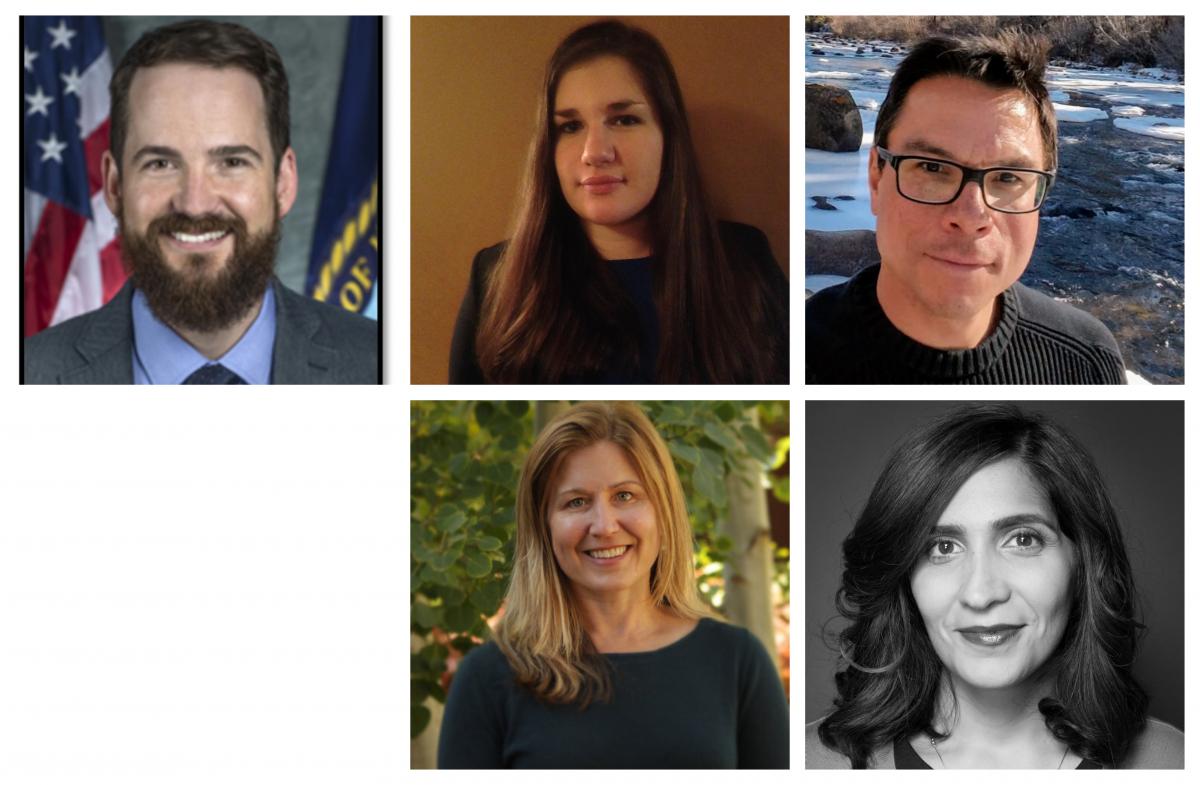
Lauren M. Borges, Ph.D.
Geoffrey Smith, Psy.D.
Debbie Sorensen, Ph.D.
Nazanin H. Bahraini, Ph.D.
Sunday, 13 June 2021 - 2:00 p.m. to 6:00 p.m. UTC/GMT +2 (Central European Summer Time)
Competence in suicide prevention is vital to clinical practice. Yet, responding to suicide risk is often a source of tremendous stress and can place therapists at odds with their clients. Respecting a client’s autonomy and maintaining therapeutic rapport can conflict with concerns for safety and practical considerations of clinician liability. Furthermore, standardized suicide risk assessment and management approaches mandated by health care organizations often promote assessment focused on the presence or absence of suicidal ideation and behavior, but fail to identify the function of suicidal thoughts and behaviors. Contextual Behavioral Science (CBS) can be used to successfully navigate these concerns to gain a nuanced and accurate understanding of the factors maintaining a client’s suicidal thoughts and behaviors (Borges et al., 2019). Acceptance and Commitment Therapy (ACT) provides a powerful and balanced approach to suicide prevention by promoting engagement in life in addition to preventing suicidal behavior (Barnes et al., 2017). Participants in this pre-conference training will learn how CBS, and ACT in particular, can be used to join with clients in acknowledging, understanding, and accepting pain that leads them to desire death, while still choosing an alternative - a vital and values-based life. Case examples, role-plays, experiential exercises, and small group discussions will be used to expand clinicians’ repertoires for working effectively and compassionately with clients who experience suicidal ideation.
The empirical literature supporting the use of ACT with clients at risk of suicide will be reviewed. Participants will then learn about ACT for Life, a treatment protocol developed for clients at high risk of suicide, but also applicable to clients at low to moderate suicide risk. The facilitators of the training developed ACT for Life through a formative evaluation with experts in ACT and suicidology, and a randomized acceptability and feasibility study recently provided empirical support for ACT for Life. The ACT for Life protocol combines CBS functional assessment practices (e.g., chain analysis) and gold standard suicide risk mitigation tools (e.g., safety planning) with guidance on engaging ACT processes to build vital values-based lives clients will choose to live.
Participants will learn about common barriers to working effectively with clients considering suicide, and explore systemic issues they face, as well as their own internal responses and behavior patterns in working with suicide. Methods for responding effectively to common barriers will be discussed, and clinicians will explore how their reactions to suicidal thoughts and behaviors may influence clinical decision making.
Additionally, participants will learn how CBS/ACT-consistent safety plans are created in ACT for Life. This is particularly important given that safety planning (i.e., assisting clients in making a hierarchical list of plans to cope with a suicidal crisis) has become the standard of care in suicide prevention and can be a useful tool for managing suicide risk, while engaging in deeper therapeutic work to address the function of suicidal thinking and behavior. However, safety plans often focus on avoidance or reduction of unwanted thoughts and emotions, and may seem inconsistent with CBS interventions that emphasize acceptance. Additionally, safety plans do not typically include material tailored to the client’s values.
The remainder of the preconference training will involve case examples and role plays to practice conceptualizing suicide from a CBS perspective and using functional analysis to take a process-based approach to suicide risk assessment and risk management. Specifically, participants will use chain analysis to identify unique factors maintaining suicidal thoughts and behaviors. Then participants will build on the information generated from chain analysis to create a conceptualization of a client’s suicide risk and develop a treatment plan to disrupt behavior maintaining suicidal thoughts and behaviors. In addition to identifying opportunities to prevent suicidal ideation and behavior from interfering with functioning, participants will practice identifying values worth living that are connected to the suffering maintaining suicidal ideation and behavior. Treatment planning will include guidance on using emotional pain and related values to inform committed actions that will build a meaningful life. Finally, participants will discuss useful experiential exercises, metaphors, and bold moves to lead clients in turning toward a life worth living.
About Sean M. Barnes, Ph.D.:
Sean M. Barnes, Ph.D. is a clinical research psychologist at the Rocky Mountain Mental Illness Research, Education, and Clinical Center (MIRECC) for Veteran Suicide Prevention and an assistant professor in the Department of Psychiatry at the University of Colorado Denver School or Medicine. As a principal investigator at the Rocky Mountain MIRECC, Sean contributes to the MIRECC's mission to prevent Veteran suicide through research, consulting, assessment, and treatment. Sean has published and presented nationally on a wide range of topics, including contextual behavioral approaches to working with moral injury and suicide risk. Sean is an ACT for Depressed Veterans provider and the principal investigator of the ACT for Life study, testing a brief ACT protocol for maximizing recovery after suicidal crises. Other aspects of Sean's research focus on ACT for Moral Injury, suicide risk assessment, and computerized interventions, but all of his projects share a common goal of alleviating suffering and helping others build vital meaningful lives.
About Lauren M. Borges, Ph.D.:
Dr. Lauren M. Borges is a clinical research psychologist at the Rocky Mountain Mental Illness Research, Education, and Clinical Center (MIRECC) for suicide prevention. She holds an academic appointment of assistant professor in the Department of Psychiatry at the University of Colorado School of Medicine. Dr. Borges’ primary line of research concerns the use of contextual behavioral interventions to help individuals approach emotions like guilt and shame more flexibly. She is a principal investigator on a federally funded study focused on investigating the acceptability and feasibility of Acceptance and Commitment Therapy for Moral Injury (ACT-MI) and a co-investigator on an intervention applying ACT to cultivate flexible responding to suicidal ideation and behavior. She is also interested in using functional analysis (in particular the chain analysis skill from Dialectical Behavior Therapy) to help individuals identify and intervene on their suicidal behavior more efficiently and effectively. Beyond her focus on interventional research, Dr. Borges is developing and validating novel approaches to measuring facets of responding to guilt and shame.
About Geoffrey Smith, Psy.D.:
Dr. Geoff Smith has been a clinical psychologist and administrator working with adults with acute and chronic mental illness since 2001. His experience spans from Community Mental Health Center program administration and development to Veterans Affairs Medical Center psychiatric unit administration, clinical services and senior leadership.
He is currently the Section Chief of Inpatient and Specialty Mental Health Programs for the Denver Veterans Affairs Medical Center. Past projects include developing Veteran programs for Peer Support Specialists providing health coaching on an inpatient psychiatric unit, developing Psychiatric step-down services, and using evidence based psychotherapy for suicide prevention. He is the psychological Incident Commander for the VA Critical Incident Response Team and Workplace Violence Prevention Programs. He provides numerous seminars and presentations across various MH staff disciplines and is a faculty instructor for the Psychiatry Department at the University of Colorado Health Sciences Center.
About Debbie Sorensen, Ph.D.:
Debbie Sorensen, Ph.D. is a psychologist in private practice in Denver, Colorado, and a part-time Clinical Research Psychologist at the Rocky Mountain VA MIRECC for Suicide Prevention. She has a Ph.D. in Psychology from Harvard University and a bachelor’s degree in Psychology and Anthropology from the University of Colorado, Boulder. She is a co-creator and co-host of the popular psychology podcast Psychologists Off the Clock, and co-author of the book ACT Daily Journal: Get Unstuck and Live Fully with Acceptance and Commitment Therapy.
About Nazanin H. Bahraini, Ph.D.:
Dr. Bahraini is a Clinical Research Psychologist and Director of Education at the Rocky Mountain MIRECC for suicide prevention. In addition, she is an Associate Professor of Psychiatry and Physical Medicine and Rehabilitation at the University of Colorado School of Medicine. Her research focuses on understanding factors that promote functional improvement and recovery among Veterans with chronic physical and mental health conditions. Along these lines, she is interested in how the principles and core processes underlying Acceptance and Commitment Therapy (ACT) relate to suicide, and how this knowledge can inform ACT based interventions to improve functioning and decrease suicide risk in indicated populations (i.e., Veterans hospitalized for suicide risk).
Learning Objectives:
Following this workshop participants will be able to:
- Explain the phenomenon of suicide from a contextual behavioral perspective.
- Discuss empirical support for using ACT with clients at risk of suicide.
- Describe systemic and therapist internal barriers to working collaboratively with clients to effectively manage suicide risk.
- Create a CBS/ACT consistent safety plan to manage suicidal crises.
- Use functional suicide risk assessment for case conceptualization and treatment planning.
- Describe creative hopelessness, values, and committed action work that can be used to help clients build lives they will choose to live even in the presence of psychological pain.
Target Audience: Beginner, Intermediate, Advanced, Clinical
Components: Conceptual analysis, Literature review, Original data, Experiential exercises, Didactic presentation, Role play
Package Includes: A general certificate of attendance
Acceptance and Commitment Therapy for Obsessive Compulsive and Anxiety Disorders in Children and Adolescents
Acceptance and Commitment Therapy for Obsessive Compulsive and Anxiety Disorders in Children and AdolescentsAcceptance and Commitment Therapy for Obsessive Compulsive and Anxiety Disorders in Children and Adolescents

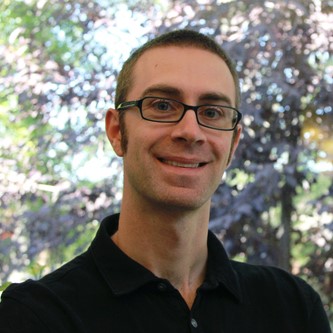
Sunday, 13 June 2021 - 2:00 p.m. to 6:00 p.m. UTC/GMT +2 (Central European Summer Time)
This workshop combines two professionals whose careers have largely focused on the use of ACT to treat obsessive compulsive and anxiety disorders. Dr. Twohig is a US citizen and Dr. Zurita Ona is Bolivian but works and resides in the USA. Dr. Twohig has conducted his work within a research setting with additional applied work in a university clinic. Dr. Zurita Ona’s works has occurred in a private clinic with related scholarship activities. Both work with children, adolescents, and adults. Additionally, they have been collaborating professionally for the past two years and have a common conceptualization of obsessive compulsive and anxiety disorders and their treatment.
Obsessive compulsive and anxiety disorders include: obsessive compulsive disorder, trichotillomania, social phobia, panic disorder, separation anxiety disorder, and phobias. While the literature on ACT for obsessive compulsive and anxiety disorders in children and adolescents lags behind the data for adults, there has been a notable amount of work conducted supporting its effectiveness. These data show that a moderately unified ACT protocol is effective for a variety of presentations of obsessive compulsive and anxiety disorders. Only moderate adjustments need to be made for different clinical presentations.
In this two-day workshop we will first update the attendees on the research in this area. There are a handful or large randomized trials and smaller single subject designs using ACT for children and adolescents with obsessive compulsive and anxiety disorders. Next, we will present the overarching ACT conceptualization of obsessive compulsive and anxiety disorders. We will present the conceptual and procedural adjustments that would need to occur for each general presentation. This background information would likely take one-fourth of the training time. The remaining training time will showcase this work for children and adolescents. The audience will learn to facilitate exposures, monitor and facilitate processes of change within exposures, teach and track outcomes that are consistent with the ACT model. A unique behavioral intervention, the Choice Point, will be presented as a formulation and intervention to augment the impact of exposure sessions. We will teach the procedures didactically, with video, and role play.
About Michael P. Twohig, Ph.D.:
Michael P. Twohig, Ph.D. is a licensed psychologist in the state of Utah and a Professor of Psychology at Utah State University. He received his B.A. and M.S. from the University of Wisconsin-Milwaukee, his Ph.D. from the University of Nevada, Reno, and completed his clinical internship at the University of British Columbia Hospital. He is past-President of the Association of Contextual Behavioral Science, the organization most associated with Acceptance and Commitment Therapy (ACT). His research focuses on the use of ACT across a variety of clinical presentations with an emphasis on obsessive compulsive and related disorders. He has published over 100 peer-reviewed articles and two books: An ACT-Enhanced Behavior Therapy approach to the Treatment of Trichotillomania (with Woods) and ACT Verbatim for Depression and Anxiety (with Hayes). His research has been funded through multiple sources including the National Institute of Mental Health.
About Patricia Zurita Ona, Psy.D.:
Dr. Zurita Ona, Dr. Z, is a Licensed Clinical Psychologist in California. Her clinical work started first as school psychologist and then as a clinical psychologist. She has significant experience working with children, adolescents, and adults with OCD, trauma, anxiety, and emotional regulation problems. . Dr. Z is the founder of the East Bay Behavior Therapy Center, a boutique therapy practice, where she runs an intensive outpatient program integrating Acceptance and Commitment Therapy (ACT) and Exposure Response Prevention (ERP) to support clients getting stuck from obsessions, figure out what they care about, and do stuff that matters to them.
Dr. Z attends local, national, and international conferences on a regular basis in order to keep up with current clinical research and deliver up-to-date therapy services to her clients. In addition to her doctoral training, Dr. Z has nominated as a Fellow of the Association of Contextual Behavioral Science; she's a graduate of the International OCD foundation Behavior Therapy Training Institute (BTTI) for the treatment of pediatric OCD and adult OCD; her clinical work is primarily based on exposure and Response Prevention, the recognized front-line treatment for OCD, anxiety and related condition disorders. Dr. Z is intensively trained in Dialectical Behavior Therapy (DBT). Over the last 10 years, Dr. Z has been learning, practicing, and teaching Acceptance and Commitment Therapy (ACT).
Learning Objectives:
Following this workshop participants will be able to:
- Learn the diagnostic differences between obsessive compulsive and anxiety disorders
- Learn the research on ACT for obsessive compulsive and anxiety disorders in children and adolescents
- Learn to conceptualize obsessive compulsive and anxiety disorders from an ACT standpoint
- Learn how to conduct exposures for obsessive compulsive and anxiety disorders from an ACT model
- Identify the ACT core processes in regard to the “choice point model”
- Learn how to track outcomes when working with these clinical issues
Target Audience: Beginner, Intermediate, Advanced, Clinical, Research
Components: Conceptual analysis, Literature review, Original data, Experiential exercises, Didactic presentation, Case presentation, Role play
Package Includes: A general certificate of attendance
Acceptance and Commitment Therapy: Introduction & Skills Building - CLOSED
Acceptance and Commitment Therapy: Introduction & Skills Building - CLOSEDAcceptance and Commitment Therapy: Introduction & Skills Building

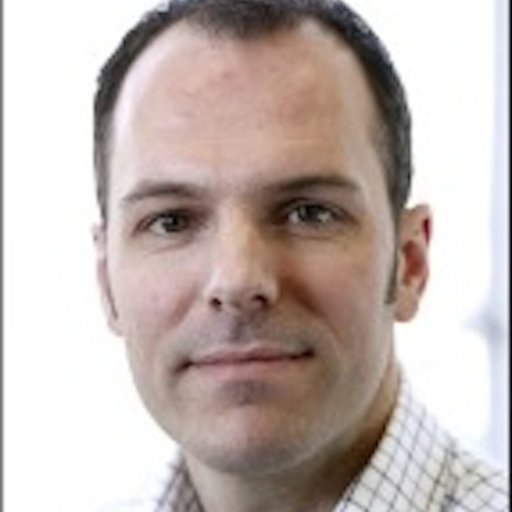
Sunday, 13 June 2021 - 9:00 a.m. to 1:00 p.m. UTC/GMT +2 (Central European Summer Time)
This introductory ACT workshop will use a novel ‘flipped classroom approach’. In a flipped classroom, learners are given access to pre-recorded materials to work through at their own pace in advance of the workshop. This way, we will be able to deliver a good deal of conceptual learning (The HEAD of ACT), you will be able to watch videos of simulated therapy (The HANDS of ACT) and be able to arrive at the live workshop already knowing quite a lot about ACT. The online live workshop time is therefore able to be used to interact around the materials, practice experientially (The HEART of ACT) and deepen your learning. In total the pre-recorded elements will amount to approximately 10 hours of self-directed study, using pre-recorded presentations and videos.
LEARNERS MUST COMMIT TO ENGAGING IN THIS FREE MATERIAL AS A CONDITION OF ATTENDING THE LIVE WORKSHOP.
Pre-Workshop Learning
Participants will be guided through the ACT foundational hexaflex, learning about each of the six core processes. You will also learn about the application of each of these core processes through case conceptualization. You will be able to watch videos of therapy with simulated patients. The trainers will provide examples of specific exercises and metaphors, helping you to understand the importance of the function, rather than the form, of ACT interventions. We will set up an email group to allow you to ask questions of the material and get answers prior to the workshop. This material will be made available well in advance of the workshop, allowing you time to go through it at your own pace.
Live Online Workshop
During the workshop, we will use experiential exercises, discussion, and role plays to deepen your understanding of the processes, and give you chances to begin using ACT principles to apply to your own work.
The two peer-reviewed ACT trainers, David Gillanders and Sonja Batten, are fully-versed in ACT and are Fellows and Founding Members of ACBS, with extensive experience delivering ACT training internationally. Their open and compassionate style models the ACT therapeutic stance, while demonstrating skills and responding to participant questions based on research-informed knowledge.
About David Gillanders, DClinPsy:
David Gillanders is a Chartered Clinical Psychologist, member of the British Psychological Society, Health & Care Professions Council, British Association of Behavioural & Cognitive Psychotherapy and a founding member of the Association for Contextual Behavioural Science. He is the Head of Clinical and Health Psychology at the University of Edinburgh. Formerly working for the NHS, he has extensive experience of working psychologically with people with both chronic physical and mental health problems from both an ACT and traditional CBT perspective. David has trained several hundred therapists in using an ACT approach across the globe and also supervises others using an ACT approach. He is a peer reviewed ACT trainer with ACBS, and the former ACBS Training Committee Chair, responsible for developing the current strategy to showing evidence of training competency and undertaking research in the area of ACT training
About Sonja V. Batten, Ph.D.:
Sonja V. Batten, Ph.D., is a clinical psychologist with a specialization in traumatic stress, who has worked in policy, clinical, and research leadership positions in the public and private sector. Dr. Batten is a recognized ACT trainer, a Past-President of the Association for Contextual Behavioral Science, the author of Essentials of Acceptance and Commitment Therapy, and the co-author of Committed Action in Practice. Dr. Batten is an experienced leader with a demonstrated history of working in the management consulting industry; skilled in Organizational Development, Health Care Operations, Leadership Development, and Acceptance and Commitment Therapy; a Licensed Clinical Psychologist, certified Change Management Practitioner, and experienced Coach and Mentor.
Learning Objectives:
Following this workshop participants will be able to:
- Know the ACT model conceptually
- Know the ACT model from the inside out (how the ACT processes ‘feel’)
- Have greater self awareness of own responses to difficult events in professional and possibly personal settings and be able to conceptualize those from within the ACT model
- Have better skills in responding flexibly to internal and external struggles in professional and possibly personal settings
- Be able to conceptualize cases / client work from an ACT perspective
- Understand the links between ACT and behavioral analysis more clearly
- Use their behavioral understanding of ACT to make more precisely targeted interventions.
- Be able to begin to apply ACT strategies within their professional context
- Apply multiple strategies for facilitating committed actions by clients
- Have a clear direction and resources for further study and training
Target Audience: Beginner, Intermediate, Clinical
Components: Online self-paced learning, email Q&A, Conceptual analysis, Didactic presentation, Case presentation, Experiential exercises, Role play
Package Includes: A general certificate of attendance
Acceptance and Commitment Therapy: Introduction & Skills Building - Portal
Acceptance and Commitment Therapy: Introduction & Skills Building - PortalWelcome!
Hi everyone, you have found your way to our private portal for our Pre World Conference Workshop, flipped classroom virtual learning environment! Between now and the 12th and 13th June you will be able to work your way through material at your own pace. The material is a combination of video presentations, text, reflective questions, audio exercises, videos of simulated therapy patients, journal articles, and case conceptualisation forms for you to download and use.
Some of the content that we have made available has not been visible when using Safari, so far Chrome has had no problems, so you might want to develop a preference for Chrome to navigate to this site. For example - right below this section of text you should see a Welcome video from Sonja and David. If you cant see it, try using Chrome. If you are having tech issues you can either email David at [email protected] or you can also email the acbs team at [email protected]
Everything is clearly marked either 'ESSENTIAL' or 'ADDITIONAL'. The items marked essential; we are going to assume that everyone has covered these. Whilst there will be a bit of time for brief Q&A in the live sessions about that stuff, some of that Q&A will also be done using the comments and chat function beneath each item. The 'ADDITIONAL' items are really for your own curiosity, and to deepen your learning, if you are able to give it the time.
We estimate that if you do only the essential activities you will need to invest approximately 7 to 10 hours prior to the live workshops. If you begin this week (week beginning Monday 17th May) that equates to approximately two hours per week. Of course, you could leave it all to the last minute and do it all the day before.....(sound familiar? Us too. Let's see if this time we could choose to do it differently). We think this way of learning will be sweeter and richer if you give it a bit of time, over a longer period of time. You will find things on the way that you will be able to try out in your work and so you could potentially arrive at the workshops already having given some of these ideas a try.
Lastly, we really want to begin the process of forming a learning community together prior to the live sessions, so after watching the welcome video below, I am going to invite you to use the comments to introduce yourself, tell us your name, where you live, a brief bit about yourself, and maybe see if you are willing to share one (or more) hopes and fears about the workshop.
Let's use this is an opportunity to begin getting to know each other and to begin listening, appreciating other perspectives, practising kindly awareness, compassion, to ourselves and to others. We are really looking forward to this way of working with you all,
Best wishes
David & Sonja
1: The Background and History of ACT
1: The Background and History of ACTIn this lesson you will get some background, the reason why ACT developed the way it did, and that will help to contextualise the roots of of this work.
ESSENTIAL: Click on this link to watch the video. This will take you to a platform called Media Hopper. The video can be made full screen, by clicking on the two diagonlal arros in the menu bar below the video. In addition, if you hover over the video with your mouse, two horizontal arros will appear on the right of the screen. By clicking on the two horizontal arrows you can switch between seeing the presenter or the slides as the larger of the two windows. You can also pick up the 'within picture' part of the video and move it around so that you can put the smaller picture window where you want it, for example if it is obscuring some text on a slide.
You can also choose to have the presenter and slide view equal in size or one smaller than the other, by clicking on the small TV picture icon just below the two horizontal arrows. Again this only appears when you hover over the video with your mouse.
ESSENTIAL: Respond to the question(s) using the comments function below
ADDITIONAL: Download and read the paper by Robert Zettle
2: The ACT Model - conceptually and 'self as lab'
2: The ACT Model - conceptually and 'self as lab'In this session you will get an introduction to the ACT Hexaflex model of Psychological Flexiblity. The six core processes leading to inflexibility are described and explained, with brief examples: Experiential Avoidance, Cognitive Fusion, Being caught up in the past or future, Attachment to a narrowly defined conceptualised self, Lack of awareness of values, and Inaction. In addition you will learn about the six core Psychological Flexibility processes that are the flip side: Accetpance, Cognitive Defusion, Present Moment Awareness, Self as Context, Values and Comitted Action.
As well as learning ACT conceptually, this lesson will also introduce these processes experientially. You will find below six audio recordings that each focus on one (or more) of the core processes, to give you a flavour of how they feel from the inside and to give you a chance to begin learning how to conduct experiential exercises that can evoke these processes.
A word about Experiential Learning
We are offering these audio exercises as an invite to step inside the ACT processes. They are typical of the kinds of exercises that you might use with clients. They can be powerful and meaningful. We would like you to gve them a try in a spirit of invitation. There is absolutely no coercion here. Only you can know what is happening in your life right now and whether any exercise is right for you. Download the guide and disclaimer document below, which will give you more of a feel for what each exercise is trying to do. Make a choice about your own level of willingness. Choose a time when you will be in a place that is comfortable for you and you are not likely to be interupted. Choose a place where you can give the exercises your full attention. Don't listen whilst driving and so on. We reccommend not doing them all at once, but spreading them out over a few days. After listening, journal about your experience of listening, connecting with the process. What did you notice? How did you respond?
ESSENTIAL: Watch this Introduction Video Here
ESSENTIAL: Watch this narrated PowerPoint that describes the ACT model conceptually
ESSENTIAL (but invitational - you can say no): Download and read the guide and then listen to the six audio tracks below to explore psychological flexibility from the inside.
ESSENTIAL: (but invitational - you can decide what you feel safe enough to share): Use the comments below to share extracts from your journalling, as you encounter these processes from the inside.
ADDITIONAL: Download and read the paper by Mike Twohig
3: Assessment & Case Conceptualisation
3: Assessment & Case ConceptualisationIn this lesson we begin to look at how to apply the principles you have been learning with clients. The examples we use are in clinical or health settings, but the same model and principles apply if you are working in coaching, organisational psychology, education, social work or other fields.
In our assessment we do use a lot of generic core skills and we ask very similar types of questions that you might already be familiar with. We ask our client to tell us about what has brought them for therapy, what their problems are, how they began and developed. We emphasise how they are responding to their issues and what the consequences of their responses are, perhaps more than many other models of therapy. We also ask them to talk about what they would most want in life if they weren't struggling with these issues. The learning activities for this lesson are:
ESSENTIAL: Watch this video presentation about assessment and case conceptualisation
ESSENTIAL: Watch these two videos of David working with John, a man with Irritable Bowel Syndrome. Video One Video Two Be sure to share reflections or ask questions about these videos in the comments on this page.
ESSENTIAL: Download and review this blank case conceptualisation form that is mentioned in the presentation. Also download this version of the form that has been completed for John (the client with IBS).
ESSENTIAL: Take the time to work through the blank form thinking of a client that you know well. It can be someone you are curently working with or someone you have worked with in the past. Use this form to create a case conceptualisation for that client. In the live sessions you will be gven the option to roleplay being your client in a small group. Be aware of confidentiality and consider changing a few details if you need to to protect that. You will bring these case conceptualisations to the live sessions so keep the form somewhere safe. The idea is to give people a chance to have a practice, so its a good idea to choose someone who your peers in this workshop could work with (its not an opportuntity to show others how complex your caseload is!) That said, you also don't want it to be too easy, try and find a case where the person is stuck and has tried a lot of different things, but that is not so stuck that it will be hard to even get going with them.
This form is to help you think it through, and isn't necessarily something you would share with the client or work with the client on, though you could have it as a guide as you engage in the collaborative process of assessment.
ESSENTIAL: Post in the comments below about the process of thinking through your client this way, and use the comments to ask any questions or clarify anything unclear.
4: Getting started
4: Getting startedAs you saw in the work with John, we move through a process of assessment and 'workability analysis' in the early stage of intervention. This process is referred to as 'Creative Hopelessness' and it is one of the most challenging parts of the model for many therapists. We are actively and persistently walking into the stuckeness with our client to help them to contact the consequences of the things they have done to try and be rid of their problems. In so doing, we will likely encounter pain, frustration, disappointment and regret to name just a few. We want the client to be in touch with a feeling that 'the strategy I am using to control or get rid of this problem is not working and will be unlikely to work' - we wnt them to get hopeless about that strategy. We do this so that they will let go of responses (strategies) that don't work, to allow more creative, new strategies to be shaped.
It can be helpful in this stage to use a metaphor to illustrate how you are understanding the problem and what your work together will be about. There are many metaphors that serve this purpose of organising the work, in this lesson you will see david continuing to work with John and develop the Sailing Boat Metaphor.
This lesson's learning activities are:
ESSENTIAL: Watch this video of Intervention Strategies in ACT
ESSENTIAL: Watch this video of continuing the work with John
ESSENTIAL: Ask questions and provide your reflections in the comments below.
5: Core metaphors
5: Core metaphorsIn this lesson we show you another commony used metaphor: The Passengers on the Bus. We also walk you through how metaphors work, giving a little glimpse into Relational Frame Theory. In the therapy video you will see I also weave into the basic metaphor other ACT interventions strategies - in particular the use of 'Physicalizing' thoughts, giving them a name, creating perspective on them. This metaphor has such broad use and it can very helpfully organise the work in any setting.
ESSENTIAL: Watch this video of David working with Anne - a woman with social anxiety and low self esteem.
ESSENTIAL: Watch this video of how metaphors work
Feel free to make reflections, comments and questions in the comments below.
ADDITIONAL: Download and read this paper on the RFT understanding of metaphor
And that is also the end of the pre workshop flipped classroom learning. We hope you have digested, reflected, assimilated and taken on some of these ideas, we look forward to seeing you live and helping you to use the skills and knowledge that you have been learning here to work with your clients, to address your own barriers to interventions and to deepen your practice of ACT.
6. Optional viewing
6. Optional viewingThe activities on this page are all optional, if you want to see more about how things went with John, the man with IBS, you can have a look at the following videos:
These also give a sense of how the work might unfold. You dont see me doing a lot of defusion or self related work with John, its more about the processes described.
Further reading and links to other resources:
This is my developmentally paced reading list:
ACT Reading list May 2021
* indicates my recommended picks
Getting started gently (light reading)
*Twohig, M. P. (2012). Acceptance and Commitment Therapy. Cognitive and Behavioral Practice, 19(4), 499–507. doi:10.1016/j.cbpra.2012.04.003
*Batten, S. (2011) Essentials of Acceptance and Commitment Therapy, London, Sage Publications Ltd.
OK: so I see the idea, how do I know the evidence is up to scratch?
Graham, C. D., Gouick, J., Krahé, C., & Gillanders, D. (2016). A systematic review of the use of Acceptance and Commitment Therapy (ACT) in chronic disease and long-term conditions. Clinical Psychology Review, 46, 46–58. http://doi.org/10.1016/j.cpr.2016.04.009
A-Tjak, J. G. L., Davis, M. L., Morina, N., Powers, M. B., Smits, J. a J., & Emmelkamp, P. M. G. (2014). A Meta-Analysis of the Efficacy of Acceptance and Commitment Therapy for Clinically Relevant Mental and Physical Health Problems. Psychotherapy and Psychosomatics, 84(1), 30–36. doi:10.1159/000365764
Swain, J., Hancock, K., Dixon, A., & Bowman, J. (2015). Acceptance and commitment therapy for children: A systematic review of intervention studies. Journal of Contextual Behavioral Science, 1–13. doi:10.1016/j.jcbs.2015.02.001
Levin, M. E., Hildebrandt, M. J., Lillis, J., & Hayes, S. C. (2012). The impact of treatment components suggested by the psychological flexibility model: a meta-analysis of laboratory-based component studies. Behavior therapy, 43(4), 741–56. doi:10.1016/j.beth.2012.05.003
Ost, L.-G. (2014). The efficacy of Acceptance and Commitment Therapy: an updated systematic review and meta-analysis. Behaviour Research and Therapy, 61, 105–21. http://doi.org/10.1016/j.brat.2014.07.018
Atkins, P. W. B., Ciarrochi, J., Gaudiano, B. A., Bricker, J. B., Donald, J., Rovner, G., … Hayes, S. C. (2017). Departing from the essential features of a high quality systematic review of psychotherapy: A response to Öst (2014) and recommendations for improvement. Behaviour Research and Therapy. http://doi.org/10.1016/j.brat.2017.05.016
Ost, L. G. (2017). Rebuttal of Atkins et al . ( 2017 ) critique of the Ost (2014) metaanalysis of ACT. Behaviour Research and Therapy, 97, 273–281. https://doi.org/10.1016/j.brat.2017.08.008
See the editor’s note and all three articles here: https://www.sciencedirect.com/science/article/pii/S0005796717302486
Stockton, D., Kellett, S., Berrios, R., Sirois, F., Wilkinson, N., & Miles, G. (2019). Identifying the underlying mechanisms of change during acceptance and commitment therapy (ACT): A systematic review of contemporary mediation studies. Behavioural and Cognitive Psychotherapy, 47(3), 332–362. https://doi.org/10.1017/S1352465818000553
Gloster, A. T., Walder, N., Levin, M., Twohig, M., & Karekla, M. (2020). The Empirical Status of Acceptance and Commitment Therapy: A Review of Meta-Analyses. Journal of Contextual Behavioral Science, 18(September), 181–192. https://doi.org/10.1016/j.jcbs.2020.09.009
WOW: There seems to be something in here, so how do I learn how to do it?
*Join the Association for Contextual Behavioural Science (ACBS) at www.contextualscience.org Minimum fee is $15 and you can download lots of articles, therapy materials, measures etc. You can see my training page there with lots of goodies, including mp3 audio files of exercises: http://contextualscience.org/david_gillanders_training_page
Hayes, S. C., Strosahl, K. D., & Wilson, K. G. (2011). Acceptance and Commitment Therapy (2nd Edition): The Process and Practice of Mindful Change (2nd ed.). New York: Guilford Press.
Harris, R. (2009). ACT made simple : an easy-to-read primer on acceptance and commitment therapy. Oakland: New Harbinger. (You can even download the first two chapters for free along with lots of other goodies at: http://www.thehappinesstrap.com/free_resources )
Stoddard, J. A., Afari, N. A., Hayes, S. C. (2014) The Big Book of ACT Metaphors: A Practitioner’s Guide to Experiential Exercises and Metaphors in Acceptance and Commitment Therapy. Oakland CA: New Harbinger
Luoma, J., Hayes, S., & Walser, R. Learning ACT: An Acceptance and Commitment Therapy Skills Training Manual (2nd Edition). New Harbinger, 2018.
*Villatte, M., Villatte, J. L., & Hayes, S. C. (2016). Mastering the Clinical Conversation: Language as Intervention. New York: Guilford Press. (also a website to support this work with videos: https://languageasintervention.com
Westrup, D. (2014). Advanced Acceptance & Commitment Therapy. Oakland, CA: New Harbinger Publications.
I’m hooked: give me more!
*Wilson, K. G., & Dufrene, T. (2008). Mindfulness for Two: An acceptance and commitment therapy approach to mindfulness in psychotherapy. New Harbinger, Oakland. Its also supported by a website http://www.onelifellc.com/Workshop_Goodies.html
Tirch, D., Schoendorff, B., & Silberstein, L. R. (2014). The ACT Practitioner’s Guide to the Science of Compassion: Tools for Fostering Psychological Flexibility. Oakland CA: New Harbinger.
Polk, K. L., Schoendorf, B., Webster, M., & Olaz, F. O. (2016). The Essential Guide to the ACT Matrix: A step by step approach to using the ACT Matrix model in clinical practice. Oakland, CA: New Harbinger Publications.
Mmmm, maybe I need more background in behaviour analysis…
*Ramnero, J., & Torneke, N. (2008). The ABC’s of Human Behavior: Behavioural Principles for the Practicing Clinician. New Harbinger, Oakland, CA.
http://www.tastybehaviorism.com/Welcome.html
I am a psychology geek and I want to know everything…
Zettle, R. D. (2005). The Evolution of a Contextual Approach to Therapy : From Comprehensive Distancing to ACT. International Journal, 1(2), 77-89.
Wilson, K. G. (2001). Some Notes On Theoretical Constructs: Types and Validation from a Contextual Behavioral Perspective. International Journal of Psychology and Psychological Therapy, 1(2), 205-215.
My brain is exploding but I need more – give me the strongest stuff you’ve got!!!!!!
Torneke, N. (2010). Learning RFT: An Introduction to Relational Frame Theory and its Clinical Application. Context Press, Reno, NV.
Foody, M., Barnes-Holmes, Y., Barnes-Holmes, D., Törneke, N., Luciano, C., Stewart, I., & McEnteggart, C. (2014). RFT for clinical use: The example of metaphor. Journal of Contextual Behavioral Science, 1–9. doi:10.1016/j.jcbs.2014.08.001
Foody, M., Barnes-Holmes, Y., Barnes-Holmes, D., & Luciano, C. (2013). An empirical investigation of hierarchical versus distinction relations in a self-based ACT exercise. International Journal of Psychology and Psychological Therapy, 13(3), 373–385.
Barnes-Holmes, Y., Boorman, J., Oliver, J. E., & Thompson, M. (2018). Using conceptual developments in RFT to direct case formulation and clinical intervention : Two case summaries. Journal of Contextual Behavioral Science, 7(November 2017), 89–96. https://doi.org/10.1016/j.jcbs.2017.11.005
This is more than just a therapy – this is a vision of a different kind of psychology, tell me more…
Hayes, S. C., Barnes-Holmes, D., & Wilson, K. G. (2012). Contextual Behavioral Science: Creating a science more adequate to the challenge of the human condition. Journal of Contextual Behavioral Science, 1(1-2), 1–16. doi:10.1016/j.jcbs.2012.09.004
Wilson, D. S., Hayes, S. C., Biglan, A., & Embry, D. D. (2014). Evolving the future: Toward a science of intentional change. Behavioral and Brain Sciences, 37(4), 395–416. http://doi.org/10.1017/S0140525X13001593
Biglan, A. (2015). The Nurture Effect: How the science of human behavior can improve our lives and our world. Oakland, CA: New Harbinger Publications.
I don’t like reading too much, isn’t there an easier way?
Russ Harris’s YouTube Channel: https://www.youtube.com/channel/UC-sMFszAaa7C9poytIAmBvA/videos
Online Learning Courses from Russ Harris: Psychwire
Free Videos from ACBS: https://contextualscience.org/free_videos
Arthurs Place: A resource for young people with Juvenile idiopathic arthritis. I (David) made three short films for them about using ACT strategies to live well with persistent health problems:
https://www.youtube.com/watch?v=wK_RKnSGYdU
https://www.youtube.com/watch?v=Wl046560jno&t=2s
https://www.youtube.com/watch?v=11sCEJI7hCI
Acting out the Passengers on the Bus Metaphor in Group Therapy
https://www.youtube.com/watch?v=hdeA-FKDLLc
Purchase the ACT in Action DVD’s (Steven Hayes) to stream:
https://www.psychotherapy.net/video/steven-hayes-act
Online and in person training (Primarily US based) (including some free videos and webinars)
https://www.praxiscet.com/
The ACT Matrix Academy
https://www.theactmatrixacademy.com/
Dr Kevin Polk
http://www.drkevinpolk.com/learn-about-act/
Podcasts
People Soup - a podcast by Ross McIntosh about psychological flexibility in teams, organisations and life in general
Psychologists Off the Clock - a podcast about the science and practice of living well
Cocktails & Courageous Conversations - webinar / conversations by Rikke Kjelgard
The original ACT in Context Podcast
Committed Action Presentation
Committed Action PresentationHere's the slide deck on committed action from the workshop!
Be A Brief and Powerful Clinician: Use Focused Acceptance and Commitment Therapy (FACT) to Help Many
Be A Brief and Powerful Clinician: Use Focused Acceptance and Commitment Therapy (FACT) to Help ManyBe A Brief and Powerful Clinician: Use Focused Acceptance and Commitment Therapy (FACT) to Help Many


Sunday, 13 June 2021 - 2:00 p.m. to 6:00 p.m. UTC/GMT +2 (Central European Summer Time)
Drs. Kirk Strosahl and Patti Robinson will present a practical workshop on Focused Acceptance and Commitment (FACT) June 12-13, 2021. This 7.5-hour workshop offers a brief introduction to the theoretical basis of FACT and hands-on tools for use in mastery of FACT foundation skills. Participants will learn to assess, conceptualize and deliver powerful brief interventions. After the training, participants will better understand how to shift from traditional services centered on diagnostic-based treatment to the FACT services offering brief intermittent care promoting psychological flexibility over the lifespan.
Participants are encouraged to identify another registrant as a learning partner who they will work with during skill development exercises. Otherwise, the presenters will pair you with another attendee prior to the workshop.
About Kirk Strosahl, Ph.D.:
Kirk Strosahl, Ph.D., is one of the founders of Acceptance and Commitment Therapy and specializes in the application of ACT as a brief intervention. He has practiced for 30 years in a variety of brief intervention contexts, including brief therapy clinics and primary care. He has written several professional books on the brief applications of ACT, including “Brief Interventions for Radical Change: Principles and Practice of Focused Acceptance and Commitment Therapy” and “Inside This Moment: Promoting Radical Change in Acceptance and Commitment Therapy” (Robinson & Gustavsson, co-authors, 2012, 2015). In 2018, he co-authored (along with Patricia Robinson) the second edition of their best-selling self-help book, “The Mindfulness and Acceptance Workbook for Depression: Using Acceptance and Commitment Therapy to Move Through Depression and Live a Vital Life” (Robinson, co author, 2018). Dr. Strosahl has conducted numerous training workshops around the world; his approach to teaching is clinician oriented and skill based. Because of this, Dr. Strosahl has often been referred to as the “hands of ACT”.
About Patricia Robinson, Ph.D.:
Patti Robinson, Ph.D., of Mountainview Consulting Group, is widely regarded as one of the pioneers of ACT, and a master clinician specializing in brief applications of Acceptance and Commitment Therapy. She currently consults with primary care systems around the United States that are seeking to integrate behavioral services into the general health care setting. She is the author of numerous articles and book chapters and has published six books, including Real Behavior Change in Primary Care: Improving Patient Outcomes and Increasing Job Satisfaction (New Harbinger, 2010), Behavioral Consultation and Primary Care: A Guide to Integrating Services (with Jeffrey T. Reiter) (Springer, 2007), Brief Interventions for Radical Change: Principles and Practice of Focused Acceptance and Commitment Therapy (New Harbinger, 2012), and the Mindfulness and Acceptance Workbook for Depression, 2nd Edition (New Harbinger, 2018).
Learning Objectives:
Following this workshop participants will be able to:
Day 1:
- Describe the FACT model and its application to address psychological and medical problems
- Use FACT assessment strategies
- Use FACT to conceptualize treatment
- Assess and measure psychological flexibility
- Engage patients in strong clinical conversations about values and “workability” of solutions to problems of living
Day 2:
- Gain skill in merging conceptualization and intervention
- Identify in-the-moment opportunities for enhancing Psychological Flexibility
- Create SMART behavioral experiments that promote behavioral variability
- Use the Life Path intervention as an initial visit intervention
- Create a resilience plan, after assessing your Psychological Flexibility and vitality
Target Audience: Beginner, Intermediate, Advanced, Clinical
Components: Experiential exercises, Didactic presentation, Case presentation, Role play
Package Includes: A general certificate of attendance
Empowering psychological interventions by incorporating cutting-edge RFT research
Empowering psychological interventions by incorporating cutting-edge RFT researchEmpowering psychological interventions by incorporating cutting-edge RFT research

.jpg)

Sunday, 13 June 2021 - 2:00 p.m. to 6:00 p.m. UTC/GMT +2 (Central European Summer Time)
This workshop aims to introduce the basics of Relational Frame Theory (RFT) and the implications of “cutting-edge” Clinical RFT research. The workshop will be divided into three parts. In Part 1, we will present the basic concepts of RFT through multiple clinical examples. In Part 2, we will present an RFT conceptualization of self-as-context and defusion and how it can be used to empower the exercises and clinical interactions aimed at moving these processes. Lastly, in Part 3, we will present recent research in the RFT conceptualization of worry and rumination and how it can be used to develop briefer ACT interventions. Multiple experiential exercises and role-plays will be presented across the four parts of the workshop to develop skills in Clinical RFT
About Francisco J. Ruiz, Ph.D.:
Francisco J. Ruiz received his doctoral degree in Psychology in Universidad de Almería (Spain) under the supervision of Dr. Carmen Luciano in 2009. He worked in several Spanish universities before accepting a professor position in Fundación Universitaria Konrad Lorenz (Colombia) in 2015. In this position, he designed one of the first Ph.D. programs in Psychology in the country and has been awarded as a “Distinguished Researcher” of the institution. He has published about 70 scientific articles focused on Acceptance and Commitment Therapy (ACT) and Relational Frame Theory (RFT). During the last few years, he and his colleagues are developing a model of ACT that focuses on dismantling dysfunctional patterns of repetitive negative thinking (RNT). This model incorporates previous research on Clinical RFT and new empirical developments.
About Louise McHugh, Ph.D.:
Louise McHugh, Ph.D., is associate professor of psychology at University College, Dublin; has published over 90 papers in the area of Contextual Behavioural Science; is a peer-reviewed acceptance and commitment therapy (ACT) trainer; fellow of the Association for Contextual Behavioral. Science; author of A Contextual Behavioral Guide to Self and coeditor of The Self and Perspective Taking.
About Bárbara Gil-Luciano, Ph.D.:
Barbara Gil-Luciano is a Ph.D. in Psychology and an ACT therapist with adults and adolescents. She trains in ACT in the Madrid Institute of Contextual Psychology (MICPSY) and Nebrija University. She has authored multiple publications in ACT and Clinical RFT.
Learning Objectives:
Following this workshop participants will be able to:
- Describe the clinical implications of the three properties of relational framing.
- Describe the relational framings involved in self-as-context and defusion processes.
- Design enhanced self-as-context exercises according to recent RFT research.
- Design enhanced defusion exercises according to recent RFT research.
- Describe the central role of worry and rumination in psychological inflexibility.
- Design exercises to disrupt worry and rumination processes according to the RFT analysis.
Target Audience: Beginner, Intermediate, Clinical, Research
Components: Conceptual analysis, Experiential exercises, Didactic presentation, Case presentation, Role play
Package Includes: A general certificate of attendance
Here, Now, and Between Us: Functional Analytic Psychotherapy and the power of the therapeutic relationship
Here, Now, and Between Us: Functional Analytic Psychotherapy and the power of the therapeutic relationship
Here, Now, and Between Us: Functional Analytic Psychotherapy and the power of the therapeutic relationship
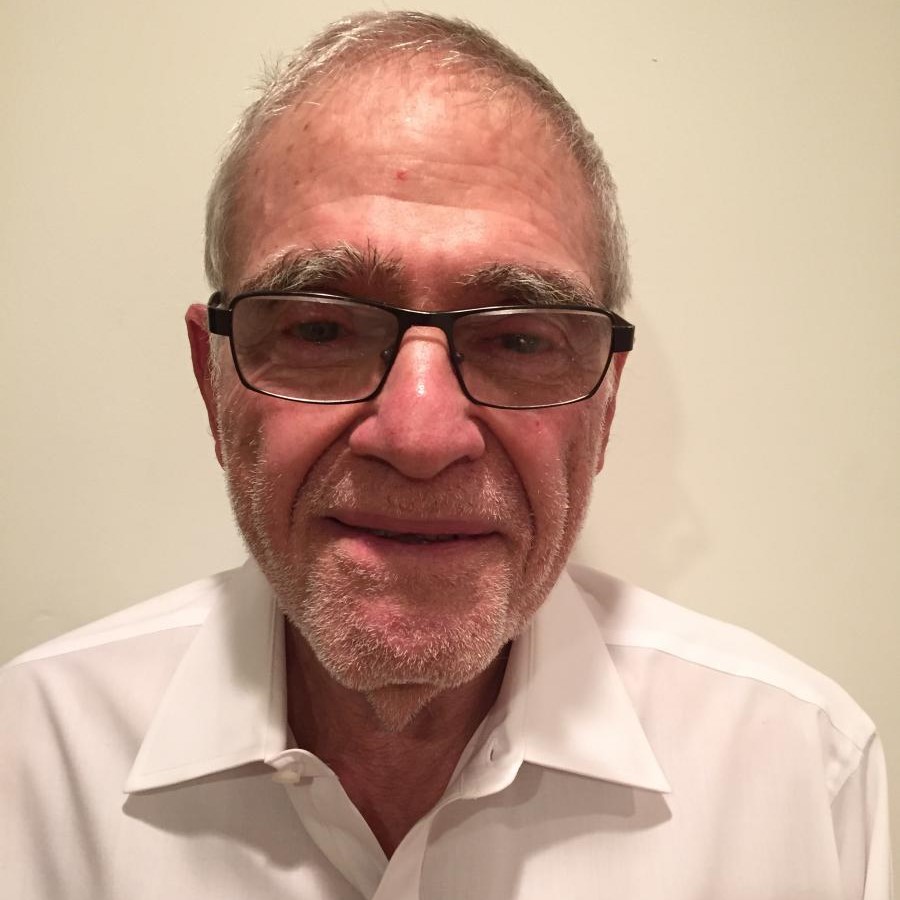



Sarah Sullivan-Singh, Ph.D.
Mavis Tsai, Ph.D.
Robert J. Kohlenberg, Ph.D.
Sunday, 13 June 2021 - 2:00 p.m. to 6:00 p.m. UTC/GMT +2 (Central European Summer Time)
As numerous pressures push our profession towards manualized intervention toolkits targeted at nomothetically-defined outcomes, this workshop aims to cultivate your ability to harness the wellspring of therapeutic opportunity available within each unique relationship we create with our clients. This is the promise of Functional Analytic Psychotherapy: a Contextual Behavioral Science (CBS) therapy for those who value basic behavioral science as much as they feel awed by the power of the therapy relationship.
We will begin by presenting a clear theoretical rationale, rooted in basic behavioral tenets, for integrating a particular type of interpersonal focus within any therapy approach you already practice. Five simple, yet profound, rules of practice comprise this framework: 1) identify clinically-relevant behavior occurring in session via functional analysis, 2) evoke these behaviors during the therapy hour, 3) shape these behaviors with your immediate authentically attuned responses, 4) customize and refine your responding by observing the impact of your interpersonal reinforcers on the client, and 5) work with the client to generalize improved in-session behavior into life outside of therapy. In this workshop, you will have the opportunity to practice seeing and hearing your clients through this lens of compassionate functional analysis and to enhance your awareness of tools for reinforcing client improvements.
As technical as the underlying behavioral roots of FAP are, the therapy that emerges from them is fundamentally human and emotionally intimate as it calls on both client and therapist to engage in reciprocal transactions of candid behavior. The relationship comes alive and transforms into an in-vivo laboratory in which you invite the client to attempt new, more effective behaviors in service of their values and goals within the therapy session. As the work progresses, FAP therapists shape and reinforce improvement by illuminating the positive impact it has on both them and the therapy relationship. In short, we encourage clients to practice, “right here, right now,” behaviors that are functionally equivalent to those they wish to implement in their lives outside of session. Because clients emit new behaviors in your presence, they benefit from the enhanced reinforcement of your immediate and sincere responding. Hence, increasing your own self-awareness, courage, and judiciousness in how you share your authentic self and emotional vulnerability allows you to augment the potency of your in-the-moment responses to clients.
Following a logical arc that weaves together essential didactic elements of theory, CBS rationale, and ethical considerations, the workshop will also introduce a curriculum of new experiential exercises that provides balance among intellectual, practical, and personal development. Of note, we will encourage you to reveal yourself, including your vulnerability, to the extent that it supports your learning and development both personally and professionally and with an ongoing, thoughtful consideration of your needs and limits within the workshop setting. Along the way, you will create a FAP Case Conceptualization for a client, begin a FAP Therapist Case Conceptualization for yourself, and practice the 5 Rules of FAP in “real-plays” with peers in small groups. We will prepare you to learn from these experiential exercises, and to take FAP on the road with you to your clients, via didactic presentations, live demonstrations, segments of video from therapy sessions conducted by the trainers, and a compendium of FAP-consistent clinical tools and resources that you will take home with you.
Whether you are new to FAP or have been practicing FAP for years, our hope is that you will leave the workshop with a deepened awareness of yourself, an awakened excitement about the possibilities of the therapy relationship, and an enlivened commitment to igniting it with each of your clients. As trainers, we plan to do the same.
About Mary P. Loudon, Ph.D.:
Dr. Loudon is an internationally recognized expert in Functional Analytic Psychotherapy (FAP) who earned her doctorate in clinical psychology at the University of Washington where she developed expertise in contextual behavioral science (CBS) approaches including FAP, Acceptance and Commitment Therapy (ACT), and Mindfulness-Based therapies. After completing her post-doctoral fellowship with Dr. Mavis Tsai, she became a Certified FAP Trainer and has since led/co-led over 25 FAP training workshops, intensives, and courses. Dr. Loudon has innovated new training techniques and content, and has taught, supervised, and provided consultation for hundreds of practitioners domestically and abroad.
In 2009, Dr. Loudon was appointed Clinical Faculty at the University of Washington in the Department of Psychology and since this time she has provided clinical supervision to doctoral students in FAP, ACT, and EFT. In her private practice, she works with individual adults and couples across a wide span of concerns including anxiety, emotional avoidance and disconnection from self or others, low mood, grief, trauma, and interpersonal connection and intimacy. She also provides therapy for therapists - an endeavor especially suited for professionals who want to improve their therapeutic skills while cultivating deeper courage, awareness, and love in their personal lives.
In 2014, Dr. Loudon co-founded The Seattle Clinic, a community of over 20 practicing psychologists who bring together expertise in a wide variety of 3rd wave therapies including FAP, ACT, DBT, and MBCT. She spearheaded and continues to co-lead the in-house FAP/ACT Consultation Team, while offering periodical 12-week FAP Therapist Training Programs for unaffiliated therapists. In the coming year, she will be launching a pre-internship FAP practicum for graduate students with Dr. Sullivan-Singh. She also offers consultation to outside groups of practitioners interested in staring FAP Consultation groups of their own.
Finally, Dr. Loudon has maintained an interest and expertise in minority and LGBT psychology throughout her academic and clinical career, devoting her graduate research to the psychological effects of bias on members of stigmatized minority groups. As a psychologist and a member of the LGBT community, it is Mary’s passion to harness the power of interpersonal connection in service of social justice. To this end Dr. Loudon has been involved in the development and implementation of CBS-based approaches to anti-racism work. Specifically, she collaborated with other CBS scientists, clinicians, and researchers to create an ACT & FAP based anti-racism workshop which has been offered in a variety of settings.
About Sarah Sullivan-Singh, Ph.D.:
Dr. Sullivan-Singh earned her doctoral degree in clinical psychology from UCLA and completed a postdoctoral fellowship within the University of Washington Rehabilitation Medicine Department before beginning her independent practice. She is a Clinical Instructor within the University of Washington (UW) Psychology Department where she supervises graduate students treating clients using ACT and FAP. Dr. Sullivan-Singh routinely guest lectures to psychology interns and psychiatry residents in the UW Department of Psychiatry and Biobehavioral Sciences (student feedback available upon request). Currently, she is also providing ongoing consultation and clinical supervision to a randomized-controlled trial at the UW Center for the Science of Social Connection of a brief FAP intervention for individuals who report high fears of intimacy.
About Mavis Tsai, Ph.D.:
Dr. Tsai, co-originator of FAP, is a clinical psychologist and senior research scientist at University of Washington’s Center for Science of Social Connection. She is the co-author of five books on FAP (some of which have been translated into Portuguese, Spanish, Japanese, Italian, Korean and Persian), and over 70 articles and book chapters. She is an ACBS Fellow, and received the Washington State Psychological Association’s Distinguished Psychologist Award in recognition of significant contributions to the field of psychology. She gave a TEDx talk “Create Extraordinary Interactions”, has presented “Master Clinician” sessions at the Association for Behavior and Cognitive Therapy, has led numerous workshops nationally and internationally, and trains online clinicians all over the world in FAP. As Executive Director of the Nonprofit Organization ‘Awareness, Courage & Love Global Project” which brings FAP to the general public, she trains volunteers to lead chapters in six continents to create a worldwide- network of open-hearted change-seekers who strive to meet life’s challenges through deepening interpersonal connection and rising to live more true to themselves.
About Robert J. Kohlenberg Ph.D.:
Dr. Kohlenberg received his doctorate at UCLA and is a Professor of Psychology at the University of Washington where he served as the Director of Clinical training. He is certified by the American Board of Professional Psychology, received the Washington State Psychological Association’s Distinguished Psychologist Award, and is a Fellow of ACBS, Society for Exploration of Psychotherapy Integration, and American Academy of Clinical Psychology. He is the co-originator of Functional Analytic Psychotherapy (FAP), has attained research grants for FAP treatment development, has co-published many papers and six books, including Functional Analytic Psychotherapy: A Guide for Creating Intense and Curative Therapeutic Relationships.
Learning Objectives:
Following this workshop participants will be able to:
- Describe the 5 Rules of FAP and the behavioral theory underlying them.
- Delineate functional classes of behavior that may get expressed differently across contexts, including in outside life, (O1s/2s), as a therapist (T1/2s).
- List 3 strategies for reinforcing client target behaviors in session.
- Demonstrate ability to recognize and evoke clinically relevant behavior and to utilize genuine responses to extinguish and punish problematic behaviors.
- Prepare a FAP case conceptualization and treatment plan for one client that demonstrates the application of functional analysis to client behavior and awareness of the impact of your own therapist behavior on the client.
- Discuss ethical considerations related to cultivating intense therapeutic relationships with clients when using FAP, and describe the benefits of engaging with a FAP-informed Consult Team.
Target Audience: Beginner, Intermediate, Advanced, Clinical
Components: Experiential exercises, Didactic presentation, Case presentation, Role play
Package Includes: A general certificate of attendance
Life from the Feet Up: Supporting Client Change through ACT Process and Therapeutic Relationship
Life from the Feet Up: Supporting Client Change through ACT Process and Therapeutic RelationshipLife from the Feet Up: Supporting Client Change through ACT Process and Therapeutic Relationship

Sunday, 13 June 2021 - 9:00 a.m. to 1:00 p.m. UTC/GMT +2 (Central European Summer Time)
Acceptance and commitment therapy (ACT) has transformed the lives of clients and clinicians in many ways and—as part of a broader shift in the practice of psychotherapy emerging from a new theory of human language —has had a significant impact in the field of psychology. ACT has flourished in areas of application, research base, and clinical use around the world. Not only does it have a broad reach that continues to grow, it also tends to have a distinctive and personal impact. Done with intention and presence, ACT links us to the very qualities of what it means to be alive and whole, to be a conscious and experiencing being. Yet, the behavioral processes implemented in ACT may be learned and understood at many levels and may remain challenging to implement in a flexible, consistent, process-based, and effective fashion. Functional analysis remains a vital yet sometimes elusive aspect of ACT. As well, multiple levels of process are present in any therapy, including those processes beyond ACT’s 6 core. Moving beyond simple technique and into a fluid ACT intervention requires attending to intrapersonal, interpersonal, and overarching and ongoing processes in the context of the psychotherapeutic relationship. Engaging in an on-going functional analysis feeds these processes and informs the case conceptualization. Digesting the theory and research behind ACT and understanding its content, processes, techniques, and foundational goal—psychological flexibility—is about inviting clients back into the vitality found in human joy and pain in the movement toward meaning. Connecting workshops participants to on-going functional analysis and the multiple levels of process found in ACT from a more in-depth, experiential, or heartfelt place will be the focus of this workshop. Didactic presentation, video, role-play and experiential exercises will be used to convey the material.
About Robyn Walser, Ph.D.:
Robyn D. Walser, Ph.D. is Director of TL Consultation Services, Assistant Professor at the University of California, Berkeley, and works at the National Center for PTSD. As a licensed psychologist, she maintains an international training, consulting and therapy practice. Dr. Walser is an expert in Acceptance and Commitment Therapy (ACT) and has co-authored 6 books on ACT including a book on learning ACT. She has most recently written a book entitled: The Heart of ACT, released in 2019. Dr. Walser has expertise in traumatic stress, depression and substance abuse and has authored a number of articles, chapters and books on these topics. She has been doing ACT workshops since 1998; training in multiple formats and for multiple client problems. Dr. Walser has been described as a “passionate, creative, and bold ACT trainer and therapist” and she is best known for her dynamic, warm and challenging ACT trainings. She is often referred to as a clinician’s clinician. Her workshops feature a combination of lecture and experiential exercises designed to provide a unique learning opportunity in this state-of-the-art intervention. http://www.tlconsultationservices.com/
Learning Objectives:
Following this workshop participants will be able to:
- Explain what is meant by exploring ACT processes from the perspective of personal internal experience and how it is relevant to therapy.
- Describe the role and function of interpersonal process in the implementation of ACT.
- Describe functional analysis and its role in the overarching and ongoing process of ACT intervention and case conceptualization.
- Explain how intrapersonal and interpersonal behavioral patterns inform a functional approach.
- Explain how different levels of process participate in and inform the therapeutic relationship.
- Explain what is meant by ACT processes and their flexible use with respect to the six core components of ACT tucked inside of therapeutic relationship.
- Explain how ACT metaphors and experiential exercises can be tailored to fit the client’s experience and language practices including the social and cultural contexts.
- Describe barriers to fluid implementation of ACT and how to work through these barriers in an ACT consistent fashion.
- Describe the role of personal values in guiding the work done in ACT therapy and how to apply it across sessions.
- List the benefits of mindfulness as a practice as well as an ongoing process during session, including how it can be used to cultivate compassion.
Target Audience: Intermediate, Advanced
Components: Conceptual analysis, Experiential exercises, Didactic presentation, Case presentation, Role play
Package Includes: A general certificate of attendance
Mindfulness and Compassion Focused Therapy for Everyone
Mindfulness and Compassion Focused Therapy for EveryoneMindfulness and Compassion Focused Therapy for Everyone
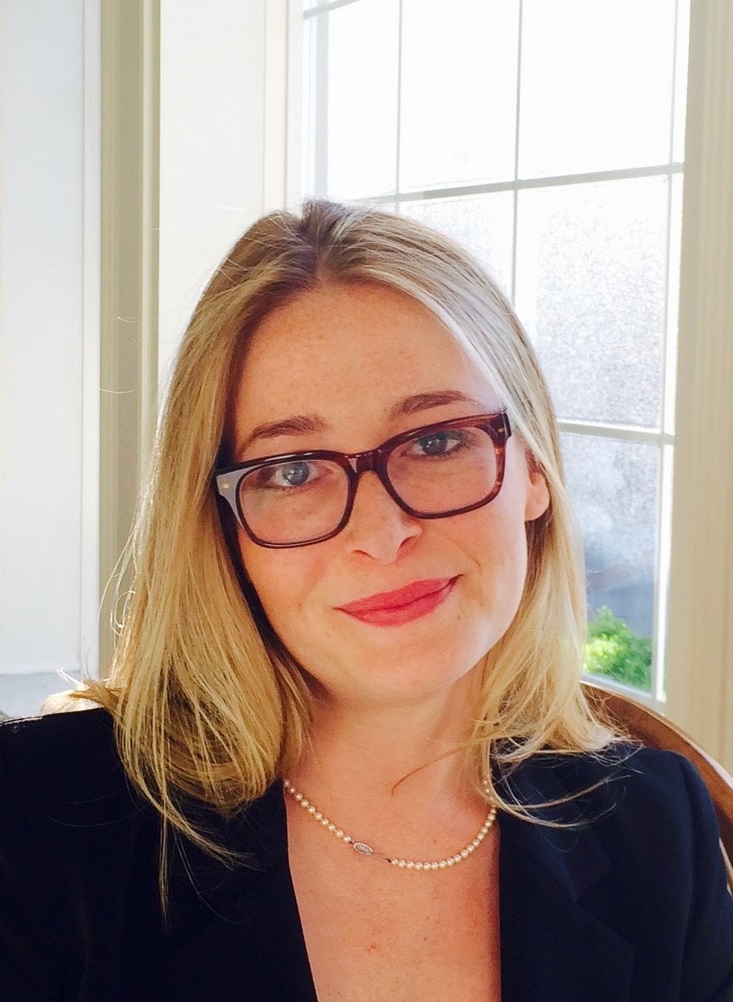
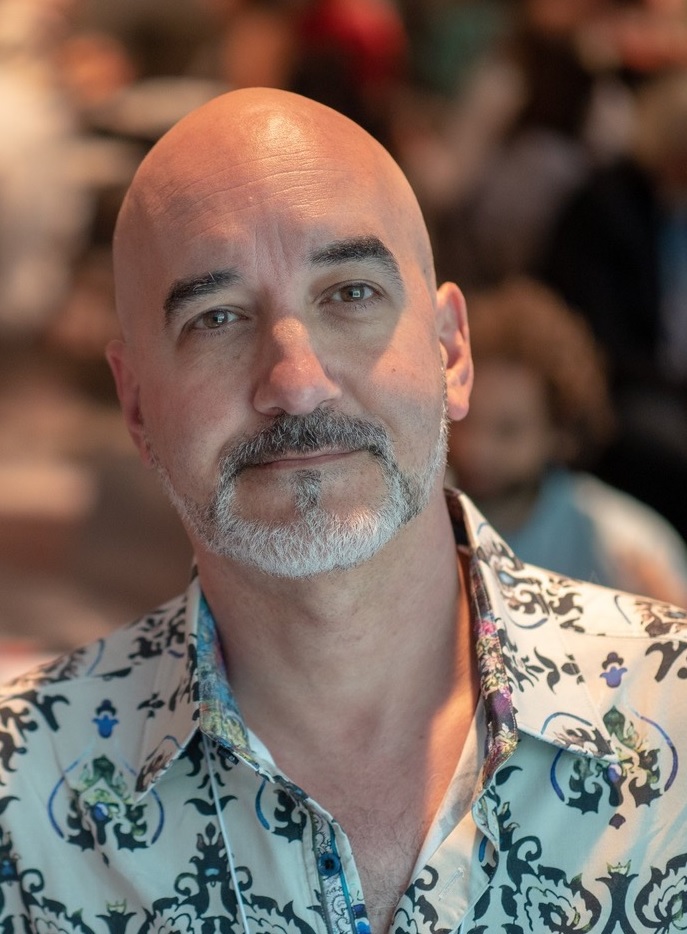
Dennis Tirch, Ph.D.
Sunday, 13 June 2021 - 9:00 a.m. to 1:00 p.m. UTC/GMT +2 (Central European Summer Time)
We know that developing mindfulness, acceptance and compassion can lead to growth in well-being and psychological flexibility. But, how can we focus our efforts, and robustly train these capacities for our clients and ourselves? How do we awaken the compassionate mind, to move ever more fully into lives of meaning, purpose and vitality?
Compassion Focused Therapy (CFT) training can be a path to personal growth and performance enhancement for therapists practicing just about any approach. Over the last 10 years, thousands of ACT practitioners, in particular, have added CFT tools to their repertoire, changing the game and exploring new ways of working with their personal and professional selves. During the past 15 years, CFT has been found to be beneficial for people experiencing a wide range of difficulties, and recent advances in research and practice have suggested that compassion may be one of the most important processes in psychotherapy effectiveness.
This deeply experiential workshop will explore the foundational series of mindfulness and compassion imagery practices that make up the heart of CFT. Participants will learn these practices through direct, personal experience, learning CFT from the inside out. In addition to meditative exercises, we will demonstrate and practice ways to build up self-compassion through the psychotherapy relationship, using classic compassion training methods in the natural flow of a therapy session. We will review and explore the relationship between compassionate mind training and psychological flexibility, grounding our work in evolutionary science, attachment theory, and contextual behavioral theory. An array of learning tools will be used, including guided mindful compassion practice, role-play exercises, self-reflection, mindful movement, narrative, video and case examples.
Wherever you may be in your professional journey, from beginner to seasoned expert, you may find that these methods can complement and strengthen your therapeutic approach. No previous CFT experience is necessary, and the trainers are aiming to help ACT and FAP therapists, in particular, as they integrate a compassion focus into the work they do. This workshop presents a novel approach to understanding the therapy – aimed at helping participants to advance their compassion work. This is an opportunity to integrate the dimensions of compassion work into your practice, while renewing your understanding of the fundamental dynamics of mindfulness and compassion. Together, we will build a road map towards increased compassion-based living, mindful courage, and psychological flexibility.
About Dennis Tirch, Ph.D.:
Dennis Tirch, Ph.D., is President of The Association for Contextual Behavioral Science (ACBS) and the Founder of the Center for Compassion Focused Therapy in New York. Dr. Tirch is the author/co-author of numerous books, chapters, and peer-reviewed articles on ACT, CFT, CBT, and Buddhist psychology. Dr. Tirch also serves as an Associate Clinical Professor at the Icahn School of Medicine at Mt. Sinai Medical Center, and as President of The Compassionate Mind Foundation, North America. Dr. Tirch provides workshops and courses globally in mindfulness, compassion and acceptance, both in person and online. Dr. Tirch is a Fellow of ACBS, and is a Fellow and Consultant/Supervisor with the Academy of Cognitive Behavioral Therapy. Dr. Tirch is a Dharma Holder, Board Member, and Co-Founder of the Flowing Heart Temple (Ryushin-ji) of The Zen Garland Order, in New York.
About Laura Silberstein-Tirch, Psy.D.:
Laura R. Silberstein-Tirch, Psy.D., is the Director of the Center for Compassion Focused Therapy. Dr. Silberstein-Tirch is a clinical psychologist, supervisor and compassion-focused therapy (CFT) trainer who presents internationally on mindfulness, compassion and acceptance. She is the author of How to Be Nice to Yourself: The Everyday Guide to Self-Compassion and co-author of Experiencing ACT from the Inside Out, Buddhist Psychology and CBT a Clinician’s Guide and The ACT Practitioner's Guide to the Science of Compassion. She is a founding member and Past-President of the New York City chapter of the Association for Contextual Behavioral Science and the Executive Director, The Compassionate Mind Foundation, North America. Her research interests include psychological flexibility and emotions as well as CFT for anxiety and depression.
Learning Objectives:
Following this workshop participants will be able to:
- Describe and work with an ACT-friendly CFT definition of compassion in practice.
- Teach others how evolutionary science explains the powerful links we see among attachment dynamics, compassion and psychological flexibility.
- Work with the three-circle model of emotion regulation found in CFT.
- Have a working knowledge of the 7 core attributes of compassionate flexibility, and how they can be assessed, conceptualized and developed in psychotherapy.
- Deploy compassion in the therapeutic relationship to create a context of embodied compassion for themselves and their clients.
- Use compassion focused imagery with clients and themselves.
Target Audience: Beginner, Intermediate, Advanced, Clinical
Components: Conceptual analysis, Experiential exercises, Didactic presentation, Case presentation, Role play
Package Includes: A general certificate of attendance
Nurturing Roots to Reach New Heights: Revisiting Foundations of ACT as Clinical Behavior Analysis for Mastering Flexible, Process-Based Implementation
Nurturing Roots to Reach New Heights: Revisiting Foundations of ACT as Clinical Behavior Analysis for Mastering Flexible, Process-Based ImplementationNurturing Roots to Reach New Heights: Revisiting Foundations of ACT as Clinical Behavior Analysis for Mastering Flexible, Process-Based Implementation
.jpg)
Sunday, 13 June 2021 - 2:00 p.m. to 6:00 p.m. UTC/GMT +2 (Central European Summer Time)
Acceptance and Commitment Therapy (ACT) is defined by its behavior analytic roots and its focus on building flexibility into the behavioral repertoire. Many ACT clinicians, however, find behavior analytic language lacking in its ability to capture and inform the clinical work they do every day. Instead, ACT assessments and interventions are typically guided by less specific, “mid-level terms,” such as acceptance, defusion, and values. While mid-level terms certainly reduce the barriers to learning ACT as a new approach, they may unnecessarily limit the clinicians’ application of ACT to the creation and use of techniques, exercises, and metaphors that target flexibility components. This workshop offers practice with an alternative approach to ACT mastery - ACT as clinical behavior analysis.
ACT as clinical behavior analysis is simply the direct clinical application of functional contextual behavioral science and behavior analytic theory, typically in a talk therapy format. Many have dismissed behavior analysis as cold, rigid, and overly technical. However, practicing ACT as clinical behavior analysis tends to bring clinicians closer to practicing in a way that is connected, compassionate, and closely attuned to the therapist-client interaction. Far from building in rigidity, practicing ACT as clinical behavior analysis fosters innovation and therapist growth.
Using an experiential approach that progressively builds skills across two days, participants will practice the functional analysis of moment-to-moment therapy process in service of building clients’ psychological flexibility. These practice opportunities will begin with only the most basic philosophical assumptions underlying ACT and move through principles that are increasingly specific, converging on the ACT components that are typically described in mid-level terms. Participants will leave the workshop with a simple but effective behavioral framework in hand for providing clients opportunities to develop flexible, adaptive, and expansive patterns of behavior that extend far beyond the therapy room.
About Emily K. Sandoz, Ph.D.:
Dr. Emily K. Sandoz is the Emma Louise LeBlanc Burguieres/BORSF Endowed Professor of Social Sciences in the Psychology Department at the University of Louisiana at Lafayette. Emily is the Director of the Louisiana Contextual Science Research Group and the Editor-in-Chief of the Journal of Contextual Behavioral Science. She has co-authored three books on acceptance and commitment therapy for struggles with eating and body image, along with chapters and journal articles on ACT, Relational Frame Theory, values, the therapeutic relationship, and psychological flexibility. Emily has led more than 70 professional training workshops around the world, and serves as a peer-reviewed ACT trainer. She also practices as a Clinical Psychologist, focusing on clinical behavior analysis of body-related difficulties.
Learning Objectives:
Following this workshop participants will be able to:
- Describe three clinical implications of functional contextualism for clinical behavior analysis.
- Analyze talk therapy interventions in terms of the function game vs. the correspondence game.
- Analyze talk therapy interventions by tracking the functional relationship between context and behavior.
- Analyze talk therapy interventions by tracking behaviors under aversive and appetitive control.
- Demonstrate clinical behavior analytic interventions based on analyses of aversive and appetitive control.
- Describe the psychological flexibility model of clinical behavioral intervention in behavioral terms.
- Demonstrate interventions that manipulate immediate conditions to build psychological flexibility.
Target Audience: Intermediate, Advanced, Clinical
Components: Conceptual analysis, Experiential exercises, Case presentation, Role play
Package Includes: A general certificate of attendance
Therapy in the Symbolic Context: The Role of Culture, Story and Symbols
Therapy in the Symbolic Context: The Role of Culture, Story and SymbolsTherapy in the Symbolic Context: The Role of Culture, Story and Symbols.
 Workshop Leader:
Workshop Leader: Sunday, 13 June 2021 - 9:00 a.m. to 1:00 p.m. UTC/GMT +2 (Central European Summer Time)
"Our clients' personal stories and narratives about themselves are arguably the most important focus of all forms of therapy. These stories and narratives can trap our clients in emotional states that are seemingly ingrained, circular and permanent. Some stories are so powerful that even after insights and seemingly new learning and breakthroughs occur in session we often find that the stories and narratives have returned by the time of the very next session. The insights and discoveries from RFT have allowed us to understand how these stories develop for a person, why they have the power they do and what the factors are in a person's life that maintain them. With these insights, clinicians can use evidence based science driven approaches to identify what narratives to focus on in therapy and develop effective and precise therapeutic strategies on a case by case basis to foster and create new empowering personal stories and narratives that lead to personally meaningful psychological flexibility that will lead to lasting and ongoing development"
This workshop will be of assistance to Clinicians working with different populations in various ways;
For those Working with Children and Families
- How to promote functional development through the use of language and modelling in the home
- Identifying narratives that lead to harmful parenting practices and dysfunctional family systems
For those working with adolescents
- How to understand the role of social media and cultural processes that impact identity development
- How to understand the role of social group processes and evolving norms in creating the identity stories that
For those working with ACT (and other forms of CBT or interpersonal therapies)
- How to better inform your understanding of how and why various approaches work
- How to better understand the developmental processes that influenced out clients narratives
- How to identify the maintaining variables in your clients narratives and what to do about them
- How to utilise the various story creating 'tools' to guide your therapeutic approach based on your clients ways of learning
- How to capture and utilise the processes within the therapeutic relationship and space to create narratives that are meaningful and lasting for their clients
It is not known when exactly our ancestors discovered fire. We do know though that it was one of the greatest discoveries of humankind. Fire can provide energy to create, warmth to comfort and the means to burn and destroy. Being able to create, capture and use fire was a tremendous advantage to humans. It was not our greatest advantage though. Fire was to become just another tool in the enormous array of tools we were to discover, create and capture. Our actual first great achievement was our skill at passing information to each other. We could pass on information with intent and every generation watched and learned from the generation before it how to better build and use the technology of fire. Our gift from learning from another, whilst at a level never seen in any other species, was not unique to us though. Many mammals could do it. Then came our second gift. We developed the ability to share information in symbols. Words, gestures, pictures, icons and text. Symbols could bridge time and space. We could influence a person we had never met. We could leave symbols in the form of manuals, stories, parables, metaphors, idioms, poems, memes for every generations following to interpret. We began not just to model how to make fire but to discuss it, explore it, imagine its potential and theorise on ways we could learn more than just what an elder showed us. So effective was the symbolic process, we now we have 7-year-old children who understand concepts that were once considered the work of wise elders. This is the benefit of the social species becoming the social-symbolic species and we created a rich cultural tapestry to maintain this ability that is so automatic you may not realise you are using it right now.
Recently several fields ranging from Anthropology through to Neuroscience have converged in their study of symbolic learning. One of the key discoveries has been that the symbolic ability that gifted us the remarkable knowledge and reasoning capacity we now have is too much for our neurology itself to contain. It is now apparent that as we evolved the brain 'handed off' the bulk of the symbolic process to the social system. Due to this need we have created cultures to sustain our symbolic demands. It is now accepted that our minds are part of and contained in our culture through our drawings, stories, media, books, movies, ceremonies and teachings. Symbolic influence is everywhere. Once we learn to think and communicate symbolically, we are never really disconnected from the culture again and our thoughts are never really our own. Culture reflects our minds and our minds informed by our cultures. Even when physically alone we are never symbolically alone again - our culture and social influences are always in our 'mind'. This is the power of the symbolic world we live in.
We now see people more reliant on symbolic processes than ever before as we live through our social media and devices at an ever increasing rate. At the same time we see narratives used to deflect, confuse and create bias with greater skill and intention than ever before. Whilst control of the 'narrative' and seeking to influence through control of information is not new the amount and speed of information we must try to make sense of is something we as a species have never before encountered. Where once we may have needed to learn how to manage gossip and peer pressure from people we largely directly knew, we now find our identities almost completely disembodied onto social media and peer groups can seemingly be infinite and everywhere at once. Where once we could assess a speakers credibility through coherence and lines of evidence we are increasingly aware that those who seek to inform us have learned it is more profitable to play to our biases - or foster conflict - than tell us what they actually think or experienced. Our symbolic system is increasingly our greatest risk. It is apparent we are now in a world where we have never been more symbolically connected and informed and less attached to the experiences these symbols were meant to help us understand. So, just as we learned to understand fire so we could harness it and not be destroyed by it, we must now do the same with symbolic processes that gave us that ability in the first place – for the same reasons.
Therapy can be viewed as an intensive distilled and focussed version of the social-developmental processes that develop and shape humans (attachment, modelling, shared experience and a steady stream of symbols passing back and forth between the therapist and client). Given it is the ‘hothouse’ version of the social symbolic process it is apparent that we can and should understand how symbols work if we are to understand not just the human condition and functioning but the therapeutic process itself. By doing this we can better tailor our intervention approaches but also better develop approaches informed by the cultures we and our clients live within whilst reflecting what the latest science is telling us about human development and functioning.
In this workshop I will rely on various sources of research about how symbolic abilities develop and come to function and how they are then maintained throughout the lifespan. From this foundation I will then outline how these key discoveries and understanding of how symbols work can be used in clinical practice. This will include;
- Understand the foundational and pivotal developmental processes that develop and maintain symbolic abilities.
- Understanding symbolic ‘vehicles’ like story, metaphor and phrases and the roles they play in adaptive and maladaptive functioning.
- Understand how culture influences mind at multiple levels of social functioning.
- How to use these vehicles with precision and skill in therapy and assess efficacy of those vehicles.
- Using symbolic 'enhancers' like writing, drawing and role play to ground but also increase the potency of symbolic processes.
- Understanding how symbolic processes can be harmful both from internal symbolic processes (eg rumination, self criticism, cognitive bias) to external symbolic processes (the power of media, social media and other cultural influences)
- Understand how symbols gain influence and power at the expense of experience and wellbeing.
- Recognise the key symbolic processes for psychological flexibility and wellbeing and how to help your client create them.
- Learn how to help our clients recognise negative and positive symbolic processes and use them to create healthy lifestyles and patterns of living.
- The role of culture, group and identity as symbolic processes that therapy must consider for lasting change.
About Darin Cairns, M.A.:
Darin Cairns is a Clinical Psychologist and has been working in private practice for the past 15 years after working for the Western Ausralian government for 7 years. In that time he has consistently worked in three domains of practice concurrently; Developmental Psychology, designing and implementing developmental programs for children with Autism and related domains, Clinical Psychology working with children, families and adults across an array of mental health fields and in the Forensic context assisting Courts in managing high conflict family systems. He is founder and co-director of the Charles St Clinic. He has presented over 250 workshops on child development, relational frame theory and applications of learning theory to clinical practice.
Learning Objectives:
Following this workshop participants will be able to:
- Describe how symbolic learning processes work
- Explain and analyse how to use metaphor, narrative and imagery to create targeted learning outcomes
- Design and apply techniques for enhancing the potency of symbolic learning through writing, drawing and role play
- Explain how the developmental processes that lead to symbolic capacities provide insight and understanding of how psychological flexibility leads to improved well being
- Understand how to analyse a clients social influences both historical and current from the perspective of symbolic learning
- Describe and analyse how culture impacts wellbeing and what we can teach our clients to do about it.
Target Audience: Intermediate, Advanced, Clinical
Components: Conceptual analysis, Literature review, Experiential exercises, Case presentation, Role play
Package Includes: A general certificate of attendance
Viviendo en contacto con el corazón: El análisis clínico de la conducta y los principios basados en contingencias y conducta relacional
Viviendo en contacto con el corazón: El análisis clínico de la conducta y los principios basados en contingencias y conducta relacionalViviendo en contacto con el corazón: El análisis clínico de la conducta y los principios basados en contingencias y conducta relacional
“Living with heart”: Clinical behavior analysis and the principles based on contingencies and relational responding

Domingo, 13 de junio de 2021 - 2:00 p.m. hasta las 6:00 p.m. UTC/GMT +2 (Horario de verano de Europa Central)
La condición humana permite vivir en sufrimiento y vivir con sentido. Ambos son repertorios del YO, aprendidos en la historia personal, como dos modos, flexible e inflexible, de interacturar con uno mismo o de relacionarse con la propia conducta. En este workshop se presentarán tales repertorios desde los principios basados en las contingencias y en el comportamiento relacional. A través de diferentes ejemplos del patrón inflexible, se expondrán los principios relacionales involucrados en las vertientes principales por las que transcurre el proceso de construcción del repertorio flexible. Por un lado, (1) los principios implicados en facilitar el contacto con el repertorio limitante desde “el corazón”, como metáfora del sentido personal, y el inicio de una apertura de horizonte con sentido personal. Y, por otro lado, tanto (2) los principios implicados en producir una relación deíctica/jerárquica entre uno mismo y sus propias conductas, como (3) los principios dirigidos a clarificar y amplificar las funciones motivacionales del sentido personal con el fin de que se conviertan en funciones jerárquicas y activen acciones su control. Finalmente, la conocida como “relación terapéutica” será filtrada a lo largo de este proceso.
The human condition allows for living a life of suffering and a life with meaning. Both are behavioral repertoires in relation to the SELF, and are learned through a personal history, as two types, flexible and inflexible, of interacting with oneself or of relating to one's own behavior. Both repertoires will be described in this workshop on the shoulders of principles based on contingencies and relational responding. The different strategies for building flexible repertoires on the basis of the client's inflexible repertoire will be filtered through different relational processes. On the one hand, (1) the principles involved in facilitating contact with the limiting repertoire from "the heart", as a metaphor for personal meaning, and the onset of a horizon with meaning. On the other hand, (2) those principles involved in building a deictic/hierarchical relation between oneself and one's own behaviors, and (3) those principles needed to clarify and amplify the motivational functions for them to become hierarchical functions that activate behaving in several domains. Finally, the "therapeutic relationship" will be filtered through these processes.
Acerca de Carmen Luciano, Ph.D.:
La Dra. Carmen Luciano es referente mundial en la investigación, desarrollo y expansión de la psicología contextual (Terapias Contextuales y su teoría de base, la Teoría del Marco Relacional).
Inició su trabajo y docencia académica en 1979 en la Universidad de Granada. Desde 1995 es Catedrática de Psicología en la Universidad de Almería. Se doctoró en Psicología por la Universidad Complutense de Madrid en 1983. Fue investigadora postdoc Fulbright en Boston University y en Cambridge Center for Behavioral Studies (Cambridge, EEUU) con B.F. Skinner, realizando múltiples estancias diversas en universidades norteamericanas y europeas como profesora e investigadora invitada. Ha colaborado con numerosos investigadores internacionales y nacionales. Actualmente mantiene una colaboración investigadora muy estrecha con Dermot Barnes-Holmes en la Universidad de Gent y con Francisco J. Ruiz en la Fundación Universitaria Konrad-Lorenz.
Ha llevado a cabo investigaciones en el análisis funcional del lenguaje y sus aplicaciones clínicas dirigiendo desde 1986 el Grupo de Investigación Análisis Experimental y Aplicado del Comportamiento, y dirigiendo desde 2004 el Máster y Doctorado con Mención de Calidad en Análisis Funcional en Contextos Clínicos y de la Salud (Universidad de Almería). Los hallazgos generados en este contexto han sido aclamados internacionalmente por su relevancia en el enfoque contextual.
Carmen Luciano graduated in 1978 and received her Ph.D. in the Complutense University of Madrid in 1984. Professor of Psychology in the University of Almeria since 1994 – and Assistant Professor in the University of Granada from 1979 to 1993. Her research dedication began on the experimental analysis of language in 1982. Her Postdoc Fulbright research stay in Boston University and the Cambridge Center for Behavioral Studies, in 1985-86, was centered in studying problem-solving behavior with Skinner’s supervision. This was a critical point in her career as a basic researcher. She was involved in equivalence research, rule-governed behavior and, shortly after, in research of RFT and ACT. She has, and is, doing experimental-applied RFT research on coherence, deictic and hierarchical framing in the context of identifying the behavioral principles of experiential avoidance, values, defusion, the self and responding to one’s own behavior, false memories, metaphors, and brief ACT protocols. She teaches ACT focused on promoting that emotions, thoughts, and valued motivation be brought to the present to build a flexibility repertoire.
Dr. Luciano is Director of the Experimental/Applied Analysis of Behavior Research Group since 1986, where she has supervised over thirty doctoral theses. She is the Director of the Functional Analysis Doctoral Program in the University of Almeria, and the Master in Contextual Therapies Program at the Madrid Institute of Contextual Psychology (MICPSY). Her research has received international, national, and regional public funds. She has collaborated with research groups from different countries and she has spread the functional analysis perspective in meetings, courses, research presentations, and many publications. She is known for her exciting, precise, and creative style while teaching, working with clients, and doing research.
Objetivos formativos:
Después de este taller, los participantes podrán:
- Describe la inflexibilidad y la flexibilidad en términos relacionales.
- Analizar el papel de las contingencias y la respuesta relacional en la construcción de un repertorio de flexibilidad.
- Describe el proceso que implica ayudar al cliente a contactar con su propio comportamiento y los resultados obtenidos en el contexto de valores.
- Demostrar el proceso definido por el encuadre deíctico y jerárquico involucrado en ayudar al cliente a interactuar con su comportamiento de manera flexible.
- Identificar el proceso relacional al ayudar al cliente a contactar y ampliar las funciones motivacionales.
- Demostrar el proceso involucrado en hacer valores motivaciones para funcionar como funciones jerárquicas.
Following this workshop participants will be able to:
- Describe inflexibility and flexibility in relational terms.
- Analyze the role of contingencies and relational responding in building flexibility repertoire.
- Describe the process involved in helping the client to contact his/her own behavior and the results obtained in the context of values.
- Demonstrate the process defined by deictic and hierarchical framing involved in helping the client to interact with his/her behavior in a flexible way.
- Identify the relational process when helping the client to contact and amplify the motivational functions.
- Demonstrate the process involved in doing values motivations to function as hierarchical functions.